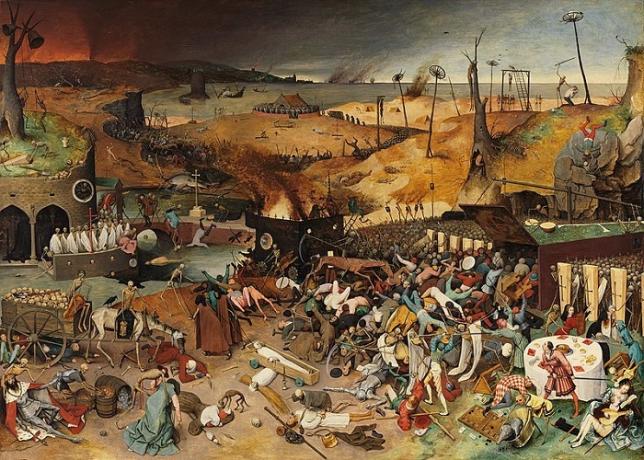When we started studying history at school, when we were very young, our teachers used to introduce us to the division of the timeline between before Christ (a. C.) and after Christ (d. C.) and the division of historical periods, starting with Prehistory, Ancient Age, etc., until reaching contemporaneity. In addition, we came into contact with history textbooks, films that address historical themes, images of historical documents and many other things. However, there is hardly any discussion of how history was made, that is, it was written, throughout all that time. The theme of the historiography.
The term historiography is composed from the terms "story” (which comes from the Greek and means research) and "spelling” (which also comes from the Greek and means writing). Thus, the name itself already contains the clearest meaning of the expression, that is, “writing of a research” or “research that needs a written form, a narrative”. Briefly: a story writing.
Historiography, or writing of history, therefore, permeates the entire history of civilizations since their first manifestations. Both the civilizations of the Middle East and those that developed in the Mesopotamia, as for the civilizations of the Far East, such as the chinese and the Hindu, had scribes (people who mastered the art of writing) who were in charge of writing, in addition to the rituals religious and economic accounting of ancient cities, the memories of the traditions that founded that civilization specific. In this process of writing the history of Antiquity, history was intertwined with the myths or with the mythological narrative. Only with the Greeks, like Herodotus and Thucydides, that history for the first time gained a more systematic organization.
The authors of historiographygreek were the first to be aware that they were producing a survey with the purpose of “not letting the facts and deeds” of his time were lost in time (as defended by Herodotus, considered the “father of history”). As cultural heirs of the great Greeks historiansromans they also developed their own historiography. It was the case, for example, of Cicero,Polybius and Tacit. The latter mentioned in his work the presence of JesusinNazareth at Palestine – which was a province of the Roman Empire at the time.
Jews and early Christians also developed their historiography, as EusebiusinCaesarea, author of Historyecclesiastical, and Flávio Josefo, author of HistoryHebrew. There was also a medieval historiography, both Christian and Islamic, and a Renaissance historiography, such as that produced by Machiavelli and Guicciardini. But it was not until the 19th century that history came to be considered a properly “scientific” discipline, with its own methods and with the peculiarity of its writing, of its report.
Today, historiography is discussed in several ways, especially with regard to the ideological vision of historians. There is a lot of talk about types of historiography that adjust according to ideology or nationality. This is the case, for example, of "historiographyMarxist”, “historiographyconservative", or "historiographyBrazilian" and "historiographyFrench", or English", among others.
By Me. Cláudio Fernandes

